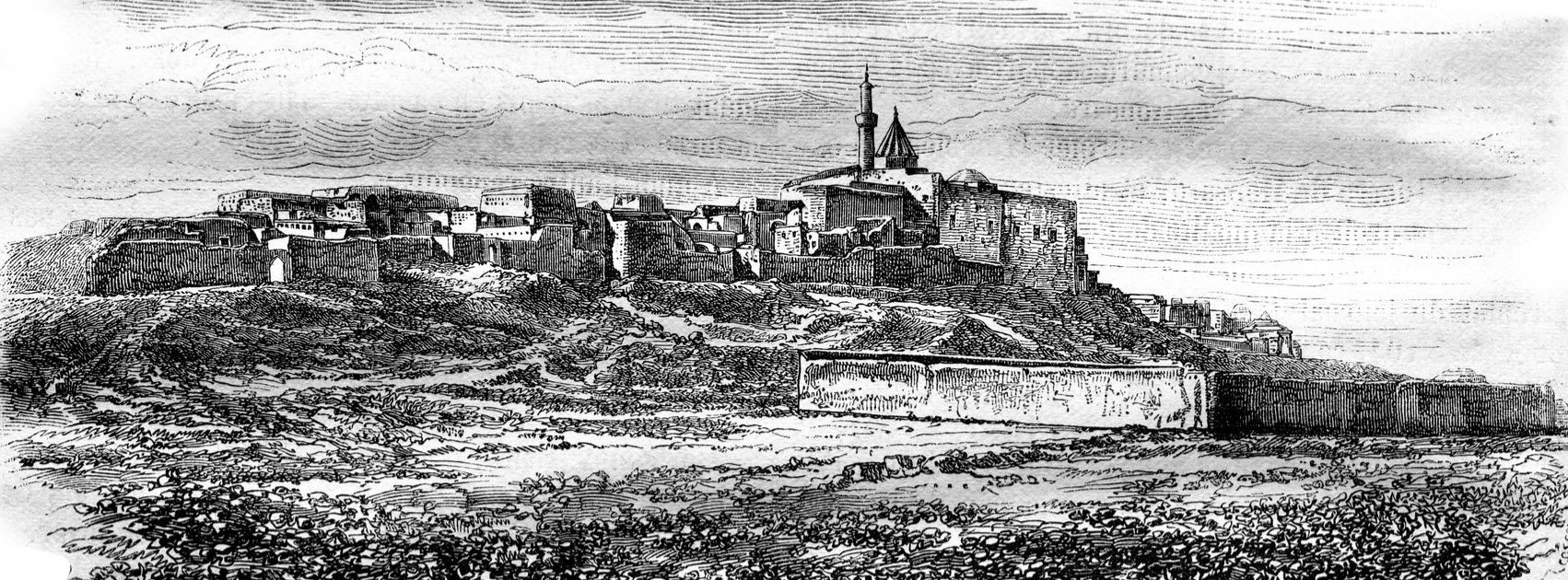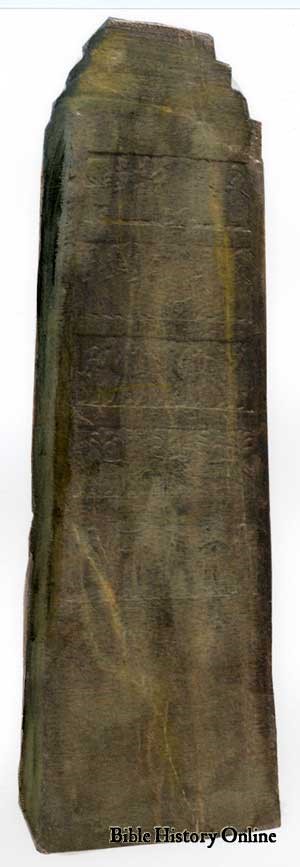The Importance of Prophets – Part 4

In Parts One, Two, and Three of this series, we examined the basic importance of the biblical prophets and took a look at who and what are the ‘major’ and ‘minor’ prophets. We began our study of the three ‘major’ prophets: Isaiah, Jeremiah, and Ezekiel, and then turned our focus to the ‘minor’ prophets of the Bible.
In this, Part Four of the series, we will continue to examine the ‘minor’ prophets and the role they played in the Word…
‘Minor’ Prophets of the Old Testament:
As we discovered in Parts One, Two, and Three of this series, there are—according to some sources—two classifications of Old Testament prophets.
One classification being ‘major’ prophets: commonly consisting of three prophets—some sources include a fourth, Daniel—who have the largest prophetic texts and written oracles pertaining to future events, such as the destruction and recreation of Israel, and the coming of Messiah. These ‘major’ prophets include: Isaiah, who we examined in Part One, and Jeremiah and Ezekiel in Part Two.
The second classification is ‘minor’ prophets: those who did not write extensive texts and oracles, but were still chosen and valued of God. These prophets include: Hosea, Joel, Amos, Obadiah, Jonah, Micah, Nahum, Habakkuk, Zephaniah, Haggai, Zechariah, and Malachi. In Part Three we examined Hosea and Amos.
Finally, while the majority of Old Testament prophets fall into these two categories, there are some, such as, Elijah, Elisha, Samuel, Nathan, and occasionally, Daniel, who are not categorized as either ‘major’ or ‘minor’ prophets despite their biblical and prophetic importance. These prophets we will simply categorize as ‘Old Testament Prophets.’
Jonah:
Living during the time of the prophets Hosea and Amos, Jonah is perhaps the most well-known of the ‘minor’ prophets. Yet, despite being well-known, Jonah, unlike the other prophets of the Word, is perhaps virtually unknown as a prophet and instead known for his disobedience to the call God placed upon him, and the second chance he received.
| Prophets During the Time of Jonah | ||
| Prophets | Kings | Years (B.C.) |
| Hosea, Amos, & Jonah | Jeroboam II | 782-753
(reigned 41 years according to 2 Kings 14:23… the years of reign found in many timelines appear biblically inaccurate in regard to this king.) |
| Hosea, Amos, & Jonah | Zechariah | 753-752
(reigned 6 months) |
| Hosea, Amos, & Jonah | Shallum | 752
(reigned one month) |
| Hosea, Amos, & Jonah | Menahem | 752-742
(assassinated Shallum; reigned 10 years) |
| Hosea, Amos, & Jonah | Pekahiah | 742-740
(reigned approx. 2 years) |
| Hosea, Amos, & Jonah | Pekah | 752-740 (rival king)
733-722 (sole king) |
Almost everyone knows the story of Jonah and the whale:
- God called Jonah to act as a prophet to Nineveh and cry out against their iniquity.
- Jonah didn’t want to go.
- Jonah tried to head in the opposite direction of Nineveh and away from God’s call.
- Escaping by boat, Jonah came face-to-face with a raging sea.
- To save those onboard Jonah had to allow himself to be thrown overboard.
- God had a “great fish” swallow Jonah whole, sparing him.
- For three days and nights Jonah stayed within the belly of the whale, praying to God.
- The whale spat Jonah upon the shore after Jonah finally accepted God’s instruction.
This encounter was used by God not only to change Jonah’s heart, but to teach us many valuable lessons… reminding us not only of His sovereignty, but that obedience is better than repentance. Yet, Jonah’s encounter with the whale, while miraculous, was also prophetic.
Jonah stayed three days in the whale, in what was a virtual tomb! The prophetic significance of this was the preview of what the Messiah—Jesus—would endure. However, in both cases, the three days within a tomb of water/a tomb of stone, before being spat upon the shore/raised back to life… well, that is where the true beginning of these stories lie.
The story of Jonah and the whale was only a new start…
Jonah was a prophet, and only the first half of the book of Jonah touches upon the well-known tale of disobedience and repentance. Consequently, that story, while important, doesn’t give the full message.
Jonah’s obedience to proclaim the prophetic Word the Lord had given him AND the subsequent mass repentance of Nineveh is where the other half of the story—where Jonah’s walk with the Lord in the book of Jonah—began in earnest.
“And Jonah began to enter the city on the first day’s walk. Then he cried out and said, ‘Yet forty days, and Nineveh shall be overthrown!’
“So the people of Nineveh believed God, proclaimed a fast, and put on sackcloth, from the greatest to the least of them. Then word came to the king of Nineveh; and he arose from his throne and laid aside his robe, covered himself with sackcloth and sat in ashes.
“Then God saw their works, that they turned from their evil way; and God relented from the disaster that He had said He would bring upon them, and He did not do it.”—Jonah 3:4-6, 10
Nineveh repented and was spared, as Jonah had repented and been spared in the whale. Yet, Jonah became angry. He disapproved of God sparing Nineveh and began to wish death upon himself so fervently that only the Word of the Lord could heal his heart.
“…the Lord said, ‘You have had pity on the plant for which you have not labored, nor made it grow, which came up in a night and perished in a night. And should I not pity Nineveh, that great city, in which are more than one hundred and twenty thousand persons who cannot discern between their right hand and their left…?’”—Jonah 4:10-11

(Source: bible-history.com. Known as the ‘Black Obelisk,’ this carved stone found near Nineveh—from the reign of the Assyrian King Shalmaneser III who may have been the king mentioned in the book of Jonah—depicts the Hebrew King Jehu, or one of his servants, bringing gifts to Shalmaneser III and kneeling at his feet. The inscription above it reads: The tribute of Jehu, son of Omri, silver, gold, bowls of gold, chalices of gold, cups of gold, vases of gold, lead, a sceptre for the king, and spear-shafts, I have received.)
Yet, the story of Jonah does not even stop there! In 2 Kings 14:25 we find that Jonah prophesied during the reign of Jeroboam II, and that the Words given to him by the Lord, produced results…
“He restored the territory of Israel from the entrance of Hamath to the Sea of the Arabah, according to the word of the Lord God of Israel, which He had spoken through His servant Jonah the son of Amittai, the prophet who was from Gath Hepher.”—2 Kings 14:25
Therefore, we see that the prophetic life of Jonah was not simply contained to the land of Nineveh where the Lord had sent him. For Jonah also prophesied to kings of Israel, speaking the Word of the Lord where he was told. And in all of the written prophecies of Jonah, we find that the people who heard prospered when they listened and obeyed the word of the prophet—the Word of the Lord!
“…I cried out to the Lord because of my affliction,
and He answered me…”—Jonah 2:2
During the course of this series we will continue to examine the lives of the prophets of the Word. We will see how those of the Old Testament prophesied not only of what was about to occur—or would occur without action—but, how they laid out prophecies which were to be fulfilled in Jesus’ day as well as those that are still coming to pass in this day!
Finally, we will examine New Testament prophets and how, from the book of Matthew to Revelation, what was and is to come, was revealed to us in part…